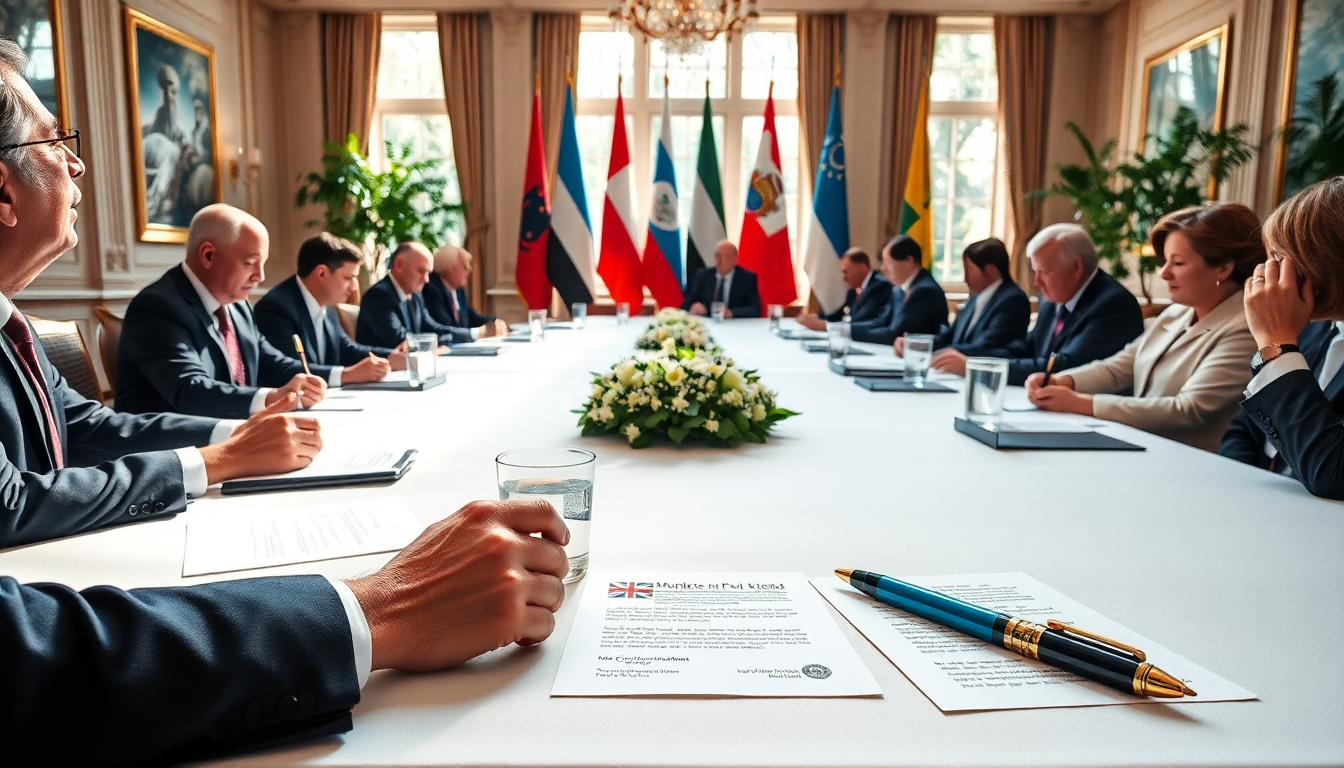Table of Contents
When we think about international diplomacy, one question often looms large: how does legitimacy impact negotiations and the signing of treaties? Recently, Russian Foreign Minister Sergey Lavrov made comments about Ukrainian President Volodymyr Zelensky that sparked a broader conversation about the legal and political implications of recognizing a leader’s authority. In this article, we’ll explore the intricate dynamics surrounding the legitimacy of leaders in international agreements and how these perceptions can shape diplomatic interactions.
The Role of Legitimacy in International Relations
In the world of international relations, legitimacy is everything. It’s often defined by how well a leader is recognized and accepted by both their own people and the global community. When questions arise about a leader’s legitimacy, it complicates their ability to negotiate and finalize binding agreements. Lavrov’s insistence that any peace deal with Ukraine hinges on a clear understanding of Zelensky’s legitimacy underscores a critical aspect of diplomatic negotiations. This isn’t just a Ukrainian issue; many global conflicts have seen leaders’ legitimacy come under scrutiny, making peace processes even more challenging.
International law adds another layer to this complexity. Treaties require that the signatories have the authority to commit their nations to specific terms. If doubts about a leader’s legitimacy surface, it can lead to reluctance or even refusal to engage in negotiations. This creates a stalemate that can prolong conflict and instability in the region. Have you ever considered how much a leader’s reputation can change the course of history?
In Ukraine’s case, the ongoing war has shifted perceptions of leadership and legitimacy. Zelensky rose to power with strong public support, but the persistent conflict has raised concerns about his ability to effectively represent the nation on the global stage. The delicate interplay between domestic opinion and international perception of legitimacy is crucial in shaping diplomatic efforts. It’s fascinating to see how these factors influence one another, isn’t it?
Impact of Political Posturing
Political posturing is a common strategy in international diplomacy, where leaders often make statements designed to project strength or resolve. For instance, former President Trump dismissed Lavrov’s remarks as mere posturing, reflecting a broader trend where rhetoric is used to sway public opinion and diplomatic negotiations. This highlights the complexities of international relations—where what leaders say can have a significant impact on alliances or adversarial stances.
Moreover, reactions from various stakeholders, including allies and adversaries, can create a ripple effect that influences negotiations. For example, Trump’s comments might resonate with certain factions in the U.S. and beyond, potentially shaping their views on Ukraine and its leadership. Understanding how political rhetoric can steer diplomatic dialogues is essential for anyone looking to grasp the nuances of international relations.
Future Implications for Diplomatic Agreements
The future of international agreements often hinges on the stability and legitimacy of leadership in conflicted regions. As leaders navigate their complex political landscapes, doubts about their legitimacy can hinder effective negotiations. This reality calls for a careful look at how international actors can support legitimate governance structures, creating an environment that fosters peace. But what does this support look like in practice?
As the global landscape continues to evolve, establishing clear criteria for legitimacy will become even more critical. Initiating dialogues that emphasize the rule of law, democratic governance, and respect for human rights can help reshape perceptions of legitimacy in international diplomacy. Pursuing these ideals isn’t just a theoretical exercise; it’s vital for forging stable and lasting peace agreements.
In conclusion, the relationship between legitimacy and diplomacy is fundamental to international relations. By understanding the impact of political posturing, the importance of recognized authority, and the future of diplomatic agreements, global leaders can better navigate the complexities of their roles in promoting peace and stability. How will these dynamics unfold in the years to come? Only time will tell.


